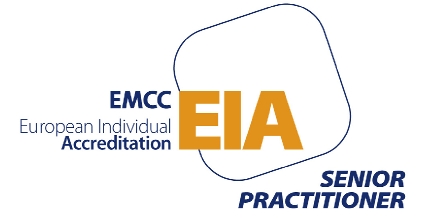“These sessions taught me the importance of developing effective communication skills... and to be more mindful of other people's positions and responses – and how I engage. The result is that I now far better understand the viewpoints of my board and management team members and interact appropriately.” Timo Boldt, CEO and founder, Gousto
Insights
34% of boards disagree on strategy, vision and purpose. 66% of board members are unwilling to confront differences of opinion – and so are willing to allow the organisation to fail rather than risk their own status in addressing the problems. This insight from Andrew Kakabadse www.kakabadse.com was quoted at a business masterclass on neuroscience and behaviour change. The Professor of Governance and Strategic Leadership at Henley Business School presumably draws on the major global study of boardroom effectiveness that he is currently conducting, with buy-in from several governments including that of the UK. It sits alongside our own intelligence around how senior executives make decisions and communicate effectively, and the challenges they face as they work as teams – or not – and seek the best outcomes for their business. We recognise that disagreement between board members is inevitable… but that conflict should be seen as positive. We know that what pulls boards together is to develop the discipline to work collaboratively, to manage conflict and to engage in respectful debate.
As a leader, how do you best build trust and achieve extraordinary results? Conversational intelligence is the key to change, says the organisational anthropologist Judith Glaser www.creatingwe.com “To get to the next level of greatness depends on the quality of our culture, which depends on the quality of relationships, which depends on the quality of our conversations. Everything happens through conversations.” Most of the time – and depending on our own existing knowledge base – those conversations are positional (we persuade and inquire) or transactional (we tell and ask). But initiate a transformational conversation and we enter new territory. We share and discover together what we do and don’t know – and it is this interaction that positively impacts our pre-frontal cortex, producing oxytocin, dopamine and serotonin. All of these positive neurochemicals are essential to building trust. And leaders drive change when they build trust.
Neoteny – the retention of adolescent traits into adulthood – is a key plank in Gratton and Scott’s The 100-Year Life www.100yearlife.com viz. photograph of a ‘mature’ man learning to skateboard. In our work with senior executives (no longer retiring in their 60s), we often visit the topic of purpose and meaning and how they might invigorate and renew themselves for the next chapter by revisiting their abilities and strengths and considering how they might use them differently. We know that successful executives continually update their intangible assets by broadening their networks, exploring new ideas, nurturing their health and managing change in a positive way.
How resilient are you? How effectively you manage your work and your life defines that resilience. In our coaching with leaders like you, we encourage them to achieve the critical balance by focusing on:
• defining success for yourself
• building support networks at work and home
• collaborating with partners
• travelling selectively
• managing technology
• developing greater self-awareness
• practising being gracious
What do we mean by that final bullet? It’s all linked to the next post and insights from Dr Dacher Keltner, author of The Power Paradox and the psychologist whose work informed the acclaimed Pixar movie Inside Out.
“Don't let power corrupt you.” In his book The Power Paradox and again in the Harvard Business Review October 2016, psychologist Dacher Keltner sets out that people usually gain power through traits and actions that advance the interests of others – empathy, collaboration, openness, fairness, and sharing. But, he argues, when they start to feel the corrupting influence of power, or to enjoy a position of privilege, those qualities start to fade. Paradoxically, the powerful are more likely than other people to engage in rude, selfish, and unethical behaviours.
The consequences of even small incivilities and indiscretions at the top can be far-reaching. Abusing power tarnishes executives’ reputations and undermines their opportunities for influence. It creates stress and anxiety among colleagues, diminishes rigour and creativity in the group and drags down team members’ engagement and performance.
“Whether or not you’ve already begun to succumb to the ‘power paradox’, you must work to remember and repeat the virtuous behaviours that helped you rise in the first place,” advises Keltner. “Practise graciousness. Focus on three essential practices that have been shown to sustain benevolent leadership, even in the most cut-throat of environments: empathy, gratitude and generosity.”
odysseymentor
Phone: +44 (0)7950 414 075
Email: amanda@odysseymentor.com
© odysseymentor 2021
Registered in England
Company Number 2107958

